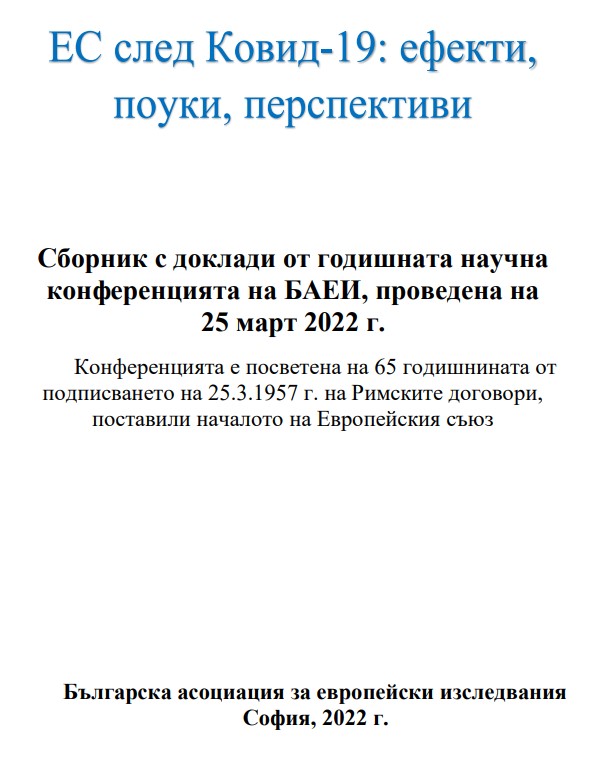Поуките от глобалната финансова криза (2008 -2009 г.) и по-доброто управление в ЕС на турбуленциите на трудовия пазар по време на КОВИД пандемията
Lessons from the Global Financial Crisis (2008-2009) Led to Better Management of Labor Market Turbulence during the COVID Pandemic
Author(s): Radoslav Pashov
Subject(s): Economy, Socio-Economic Research
Published by: Университет за национално и световно стопанство (УНСС)
Keywords: EU; Bulgaria; Unemployment; COVID-19; Crisis
Summary/Abstract: The economic crisis caused by the COVID-19 pandemic has worsened the current economic development of the EU to a significantly greater extent than the global financial crisis of 2008-2009, which was considered the most significant since the Great Depression (a drop in current GDP of the EU in 2020: -5.96%; 2009: -4.35%). Unlike the shocks of more than 10 years ago, however, governments were now better prepared and took quick measures to contain the negative effect of the recession. Bulgaria, as part of the EU, is also included in the general vision of the Union to alleviate the economic effects of the pandemic. One of the key measures of the Bulgarian governments, etc. measure "60/40", which aims to preserve the employment of the population. The aim of the study is to examine whether there is "hidden" unemployment as a result of the "60/40" measure, i.e. to what extent it has helped workers not to fall under the care of the social system (to receive unemployment benefits). The study reviews the effects of the global financial crisis for the period 2008-2009 on the gross domestic product (GDP) of the 10 richest economies in the world, there is also summary data for EU countries and Bulgaria. By means of a composition of a comparative method, the effect caused by Covid-19 and that of the 2008-2009 crisis on the gross domestic product is compiled on the page, and a comparative analysis is provided for Bulgaria and unemployment during the two crises. Based on empirical data, a simulation is made of what unemployment would be without the "60/40" mark (hidden unemployment).
Book: ЕС след Ковид-19: ефекти, поуки, перспективи
- Page Range: 84-92
- Page Count: 9
- Publication Year: 2022
- Language: Bulgarian
- Content File-PDF

